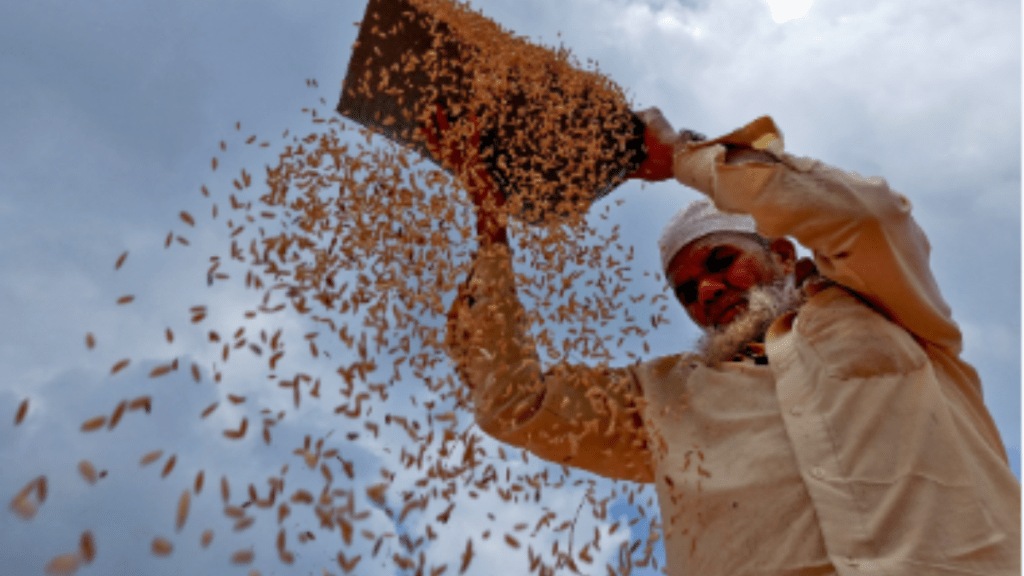The government has managed to reduce food subsidy outgo by around Rs 20,000 crore, because of record sales of 10 million tonne (MT) of wheat in the open market by the Food Corporation of India (FCI) in 2023-24.
Sources said that in FY24, out of the total food subsidy of Rs 2.12 trillion (revised estimate), Rs 1.4 trillion was routed through FCI. Actual expenses of FCI were Rs 1.6 trillion, but the transfers to the corporation was less, thanks to gains from open market sales, a source said. The subsidy would have been higher than the RE had open market sale not reduced net economic costs of grain.
Prompt payment of subsidy expenses by the finance ministry also helped the FCI save around Rs 372 crore of interest payment. The corporation used to avail short term loans due to delayed release of funds in earlier years.
Aiming to curb rise in prices, FCI last fiscal sold wheat through weekly e-auction to bulk buyers such as flour millers at a price of around Rs 2236/quintal against the minimum support prices (MSP) of Rs 2125/quintal for the 2023-24 marketing season.
The corporation supplies around 18 MT of wheat under the Pradhan Mantri Garib Kalyan Anna Yojana or free ration scheme, the economic cost of wheat for the FCI rose to Rs 27.09/kg in 2023-24 from Rs 24.67/kg two years back.
Over the last two fiscal years, MSPs of wheat witnessed an increase in the range of 5-7% annually thus increasing the economic cost of the grains which includes handling, storage, transportation and other incidentals.
The government has increased the authorized capital of the FCI by 110% to Rs 21,000 crore from Rs 10,000 crore aimed at reducing borrowing costs of the corporation. The move to raise authorized capital is likely to help the FCI reduce its borrowings from banks and other institutions, leading to a saving of around Rs 750 crore annually
Officials said out of total borrowing of FCI at Rs 51,707 crore by the end of FY24, a major chunk includes Rs 36,700 crore worth of bonds which are payable during 2028-30 in parts.
The corporation has been relatively comfortable in recent years with the cash position as the government promptly released food subsidy amounts, after the practice of taking National Small Saving Fund (NSSF) loans for subsidy financing was stopped in the FY22 Budget for the sake of fiscal transparency.
The FCI has to carry food grain stocks, a major part of which are carried perpetually as a part of its operations and maintaining buffer stock. To keep these stocks and also to fund delays in subsidy payment from the government, the FCI borrows through short term loans and cash credit limits.

